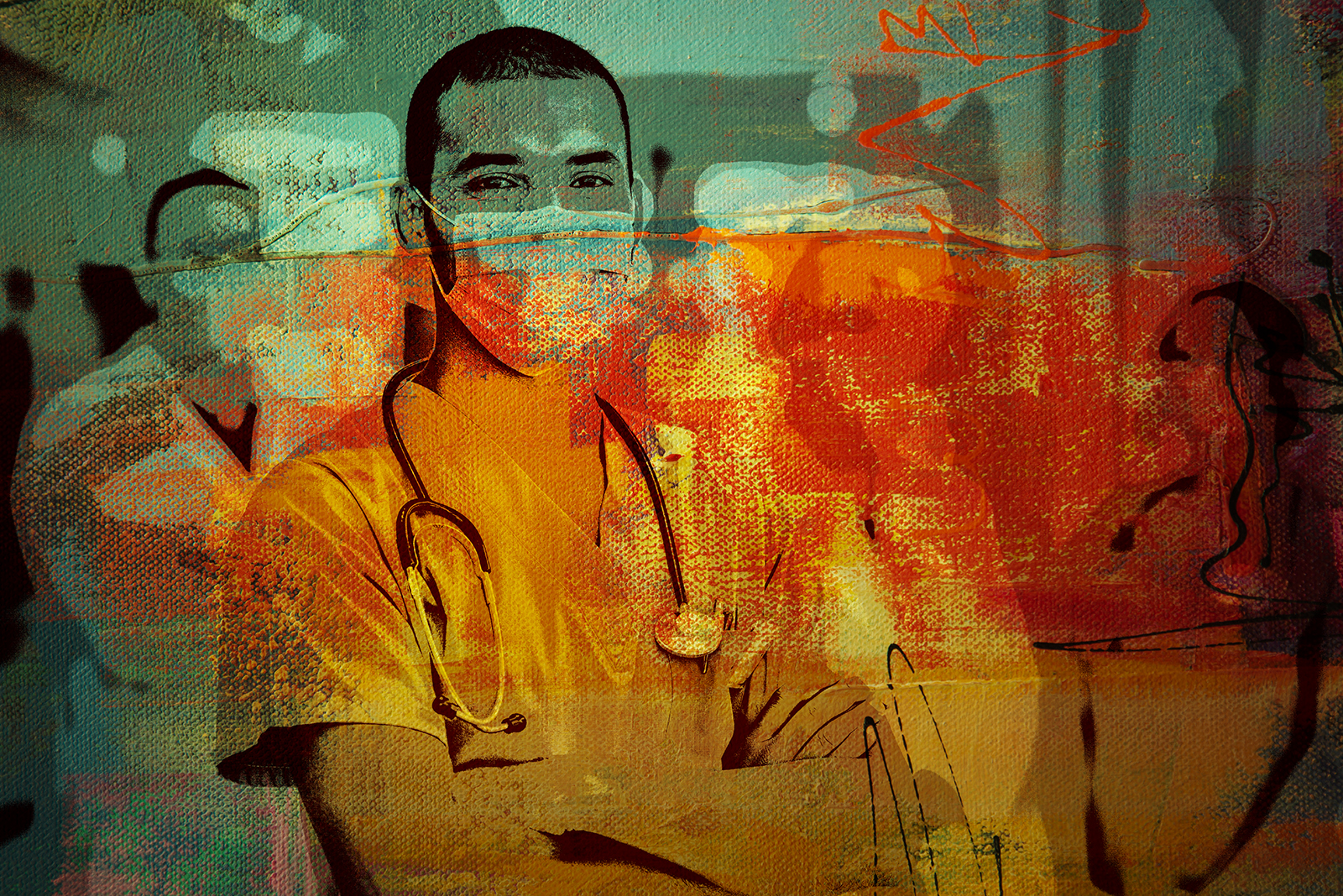COVID-19 changed the way we work, learn and live

When the COVID-19 pandemic first impacted Northern Ontario, NOSM’s response was swift. Advance preparation and planning was well underway, as teams had been monitoring the threat since it was identified in December 2019 and as the world watched the virus spread in real time.
The prevalence of the pandemic in Ontario triggered NOSM’s internal Emergency Response Team (ERT) into action. When public health recommendations and guidelines began to change, and in-person activities were deemed high-risk, NOSM transitioned almost entirely online using its pre-existing virtual platforms. Enormous efforts by the entire NOSM community ensured the move to virtual was as seamless as possible.
There was a significant shift in our mindset. During COVID-19 we experienced a collective willingness and acceptance to find solutions and implement them at a rapid pace. Three areas of change were most significant: NOSM’s successful transition to working virtually; the interdependence of NOSM’s partnerships and collaborations; and, our ability to forge many ‘firsts’ in such a short period of time.
NOSM’s successful transition to working virtually
NOSM’s distributed learning model and flexible alternative ways of working and learning, proved to be essential as we moved beyond any outdated assumptions that technology is a barrier to health care education and patient care. We experienced firsthand how crises creates innovation, and innovation can be expedited out of necessity.
More than 93% of the NOSM community began working remotely during the height of the pandemic. Three extra days of vacation were granted to all staff in recognition of working under these challenging conditions. Staff received significant support for home-based technical equipment needed to optimise their work conditions.
NOSM’s partnerships and collaborations
As an important part of the health-care system in Northern Ontario, and certainly as a medical school with a social accountability mandate, we have an interdependency with our partners in health care. Leaders from public health, clinical sites across Northern Ontario, as well as Thunder Bay Regional Health Sciences Centre (TBHRSC), Health Sciences North (HSN) and NOSM, came together to help determine required actions, timelines and navigate ongoing, continuous changes. We were able to align our vision and synchronize our approach to implement the changes that were necessary.
NOSM faculty, staff and learners were continuously engaged in finding methods to help. An impressive 303 members of the NOSM community volunteered in Operation Remote Immunity, and others volunteered to participate in their community vaccination effort.

Many NOSM “firsts”
The rapid move to online and virtual also marked notable milestones, including:
- the first virtual UME accreditation ever in Canada;
- the first virtual admission interviews; and,
- the first online Medical Council of Canada Qualifying Examination (MCCQE).
Pioneers of change at NOSM include the Undergraduate Medical Education program, staff, faculty and students who quickly adapted curriculum to online formats, and all contributors of Continuing Education and Professional Development (CEPD) who implemented the School’s first COVID-19 Pan-Northern Virtual Clinical Rounds. These pan-Northern virtual rounds were delivered over 14 weeks with 1,100 attendees who engaged with over 40 NOSM faculty presenters, allied health partners and moderators.
Expedient changes certainly didn’t slow the School down. In 2020, 59 medical students graduated and 61 residents completed their programs, with another 66 and 71, respectively, in 2021. Over the past two years, 24 students—two classes of dietetic students—graduated.
New initiatives and innovations also grew, for example the virtual 2021 Dean’s Lecture Series with a focus on Racism in Medicine, was held with nationally recognised physician leaders and more than 100 attendees. Speakers were Dr. Alika Lafontaine, the first Indigenous President-Elect of the Canadian Medical Association (CMA); Dr. Doris Mitchell, an Indigenous physician scholar, NOSM Alumna and NOSM Assistant Professor; Dr. Gigi Osler an ENT Surgeon and former CMA President; Dr. Amy Tan, a Palliative Care Physician; and, Dr. Kona Williams, Canada’s first Indigenous Forensic Pathologist and NOSM Assistant Professor.
Youth interest in health professions has also increased across Northern Ontario with the new virtual CampMed improving access. CampMed experienced record-high participation attracting 235 students in 2021.
Throughout the course of the pandemic, NOSM medical students continue to exhibit strength and resilience. This year, NOSM experienced a 100 per cent match rate in the first round of CaRMS (Canadian Resident Matching Service), and a 97 per cent pass rate on the MCCQE, which is higher than the national average. In 2021, NOSM’s Master of Medical Studies program experienced an increase in enrolment as well.
One indication of success in meeting our social accountability mandate is our dynamic incoming MD class this September. Seventeen per cent of the Class of 2025 self-identify as Indigenous and 23% as Francophone. This is the highest percentage of Indigenous students admitted in NOSM’s history and the highest percentage of any medical school in Canada.
